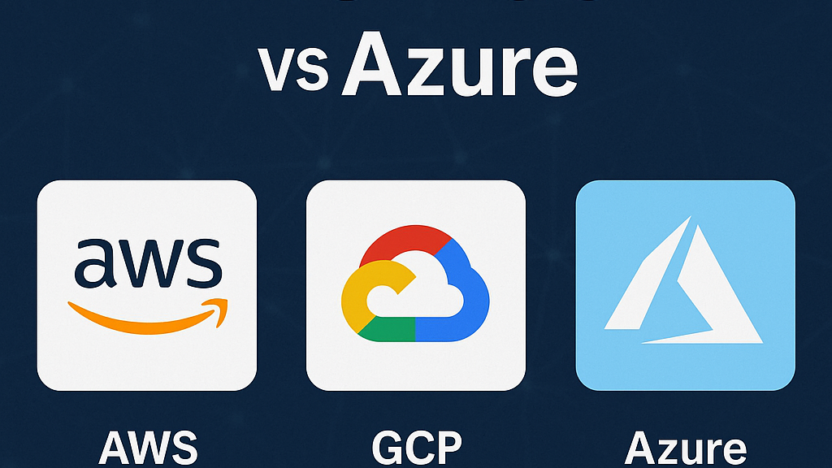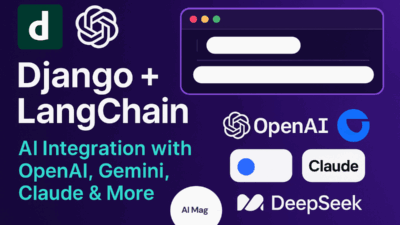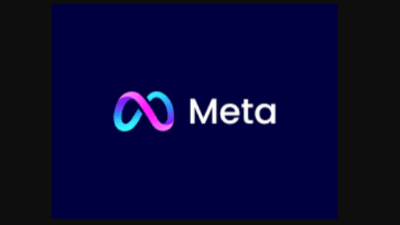In the world of cloud computing, three tech giants dominate the landscape: Amazon Web Services (AWS), Google Cloud Platform (GCP), and Microsoft Azure. Each platform offers a robust ecosystem for deploying, managing, and scaling web applications—but choosing the right one depends on your needs, budget, team expertise, and long-term goals.
This article breaks down the core strengths of AWS, GCP, and Azure, compares their offerings, and recommends deployment strategies—especially for developers building and deploying Python/Django apps.
⚖️ Comparative Overview
| Feature | AWS | GCP | Azure |
|---|---|---|---|
| Market Share | Largest | Fastest Growing | Second Largest |
| Strengths | Breadth of services, maturity, global reach | Data & AI, fast deployment tools, cost-effective | Enterprise integration, hybrid cloud, Microsoft ecosystem |
| Learning Curve | Steep | Moderate | Moderate |
| Pricing Model | Pay-as-you-go, more granular | Transparent, competitive | Flexible with some enterprise lock-in |
| Free Tier | 12-month & always-free tier | Always-free tier with Cloud Run/App Engine | 12-month + always-free services |
🌩️ 1. Amazon Web Services (AWS)
Best For:
- Large-scale, production-ready applications
- Teams needing complete control and customization
- Enterprises with complex infrastructure
Strengths:
- Largest ecosystem with over 200 services
- Global infrastructure and reliability
- Rich developer tooling (CloudFormation, CodeDeploy)
Django Deployment Options:
- Elastic Beanstalk: Easiest for Django—abstracts server management, automatic scaling, built-in support for databases.
- EC2 (Elastic Compute Cloud): Full control, ideal for custom environments.
- Lambda (Serverless): Great for microservices or functions, though Django apps require adaptation.
Recommended Scenario:
If you want full control over the OS, networking, and scaling, AWS EC2 is ideal. For quicker deployments, EBS is excellent with minimal configuration.
☁️ 2. Google Cloud Platform (GCP)
Best For:
- Startups and developers looking for fast, scalable deployment
- Data and AI-heavy applications
- Lean apps using Python/Django/Flask
Strengths:
- Simplified UI and deployment workflow
- Cost-effective (esp. for small-scale apps)
- Superior in AI/ML and data analytics
Django Deployment Options:
| Service | Description | Pros | Best Use Case |
|---|---|---|---|
| Cloud Run | Fully managed serverless container platform | Fast, auto-scaled, low cost | MVPs, microservices, REST APIs |
| App Engine | PaaS for apps with standard/flexible runtimes | Auto-scaling, simple config | Rapid deployment, minimal ops |
| Compute Engine | IaaS with VM-level control | Custom environment & scaling | High-performance, custom stack apps |
Which is Best for Django App Deployment in GCP?
✅ Recommendation: Cloud Run
- Why: Fast, scalable, deploys from a Docker container, integrates with Cloud SQL for Postgres, and supports CI/CD.
- Use Case: Ideal for modern Django apps with REST APIs, especially MVPs or low-maintenance apps.
App Engine is good for developers who want simplicity without managing containers. Use Compute Engine only if your app has custom dependencies or requires persistent infrastructure.
☁️ 3. Microsoft Azure
Best For:
- Enterprises using Microsoft products (Windows Server, SQL Server, Active Directory)
- Apps needing hybrid cloud (on-prem + cloud)
- Teams already integrated into Microsoft stack
Strengths:
- Tight integration with Office 365, Power Platform, and Active Directory
- Hybrid cloud support
- Enterprise-grade compliance and security
Django Deployment Options:
- Azure App Service: Easiest and most common for Django; supports GitHub CI/CD and scaling.
- Azure Virtual Machines: Similar to AWS EC2, full control over OS and environment.
- Azure Functions: Serverless model, but requires adapting Django to function-based architecture.
Recommended Scenario:
For Django, Azure can be the most straightforward with managed infrastructure and good CI/CD integration. Use VMs only for complex, stateful apps.
🧠 Summary: What to Choose When?
| Scenario | Recommended Platform | Deployment Type |
|---|---|---|
| MVP or Startup Django app | GCP | Cloud Run or App Engine |
| High-scale production with full control | AWS | EC2 or Elastic Beanstalk |
| Microsoft-centric enterprise stack | Azure | App Service |
| Rapid API deployment with Docker | GCP | Cloud Run |
| Heavy use of AI/ML | GCP | Any (excellent integration) |
| Legacy system integration | Azure | VM or App Service |
| Microservices/Serverless architecture | AWS or GCP | Lambda / Cloud Run |
🚀 Final Thoughts
All three platforms—AWS, GCP, and Azure—are capable of hosting Django and other web applications. The decision comes down to team familiarity, application requirements, and future growth expectations.
If you’re a solo developer or startup, GCP’s Cloud Run offers unbeatable simplicity and cost-efficiency. For full-scale enterprise apps, AWS still reigns with its powerful infrastructure. And if your company is entrenched in the Microsoft ecosystem, Azure delivers seamless integration.
Choose wisely based on your project’s needs, budget, and scalability goals.



